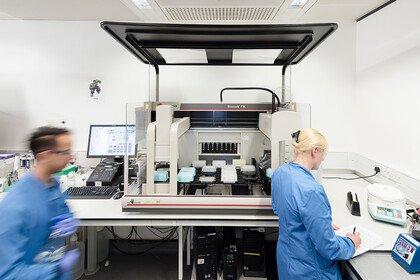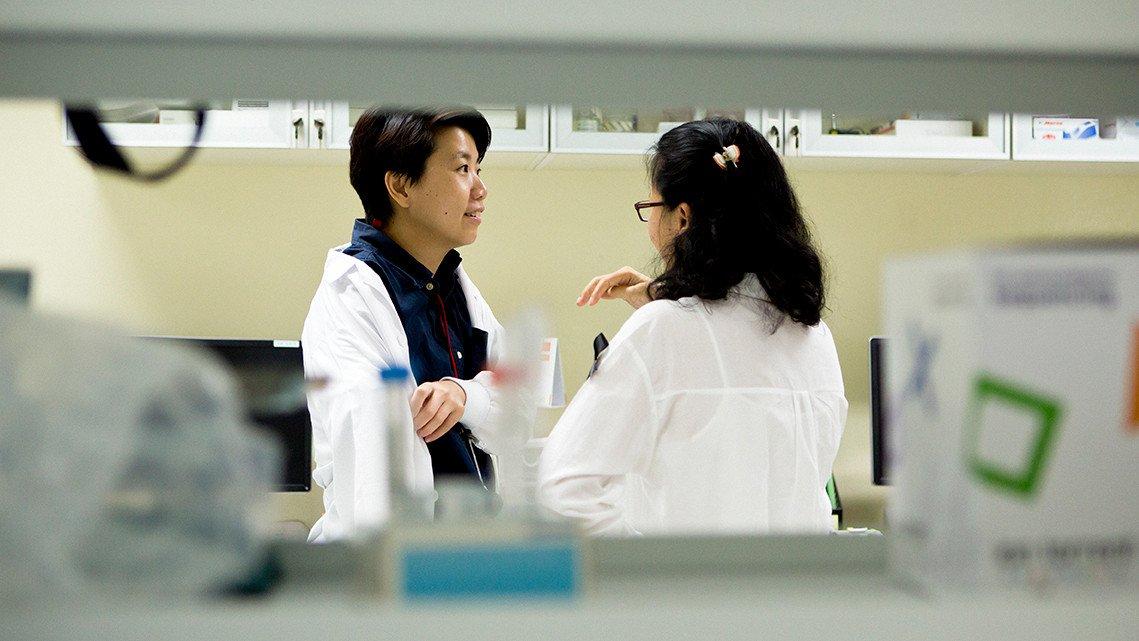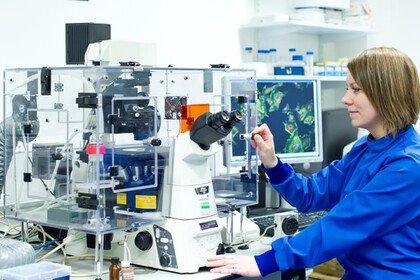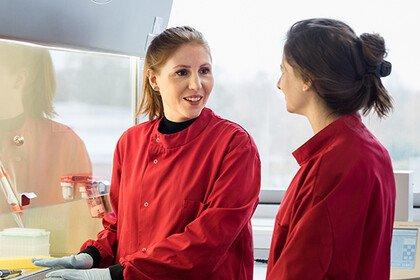
Value people as well as papers to improve research culture
As scientists, we try to make sure our research is rigorous so that we can avoid costly errors. We should take the same approach to tackle issues in research culture, and use our problem-solving skills to fix them.

Like many in Wellcome’s recent survey, I’ve found research culture to be, at times, too competitive, too individualistic, and lacking openness.
And that needs to be addressed. As a professor of geoscience at Imperial College London, I’m keen to do my bit; I do try to promote a healthy research culture in my lab.
42% of researchers in the survey reported unhealthy competition in their working environments, and 78% agreed that high levels of competition have created unkind and aggressive research conditions.
The message is often: 'To succeed, however one chooses to define success, you have to beat everyone else'. Most accolades are for an individual’s work rather than for their efforts at making the research 'landscape' better for everyone. And we’re often rewarded for hiding our completed work away in journals, rather than sharing it as openly as possible as research proceeds.
The biggest challenge to changing culture will be changing people. Power typically resides at the top – many academic managers have gone through the challenging early career stage themselves and know how bad it can be. ‘Survivor bias’ has a lot to answer for; these managers look back and think that, because they got through the system, it can’t be that bad.
Sadly, like many prejudices, we often wait for change to come with the next generation and then it doesn’t. Unless we now make a concerted effort, things will remain the same. Sharing ideas and discussing the issues raised in the survey is a critical part of this.
Be more open about mental health and wellbeing
In the survey, many researchers said they had difficulty with stress. 53% had sought, or wanted to seek, professional help for depression or anxiety.
Personally, I’m open about my life outside work and encourage my colleagues to show their human side. For me, talking about family is an important part of saying that I love my work, but that there’s this important other thing that happens after 5.30pm and at the weekend. My openness is an attempt to make it clear that academics are not just work-focused automatons that lack emotion.
I’m also open about my stresses and strains, and my personal experience of depression during my PhD. Pride can stop people opening-up about and seeking help; knowing they are not unusual or alone may encourage them. I’ve been told by both friends and strangers, who don’t want to share their mental health issues publicly, that reading about my history has encouraged them to seek help.
In our lab we’ve implemented a code of conduct which outlines our work practice philosophy. It’s a 'live' document, which is regularly edited. It makes it clear that we take physical and mental wellbeing very seriously, because it’s important that you feel physically and mentally able to come to work and to do the best science you possibly can.
A section of our code of conduct acknowledges the evidence that certain attributes of academic research may challenge mental health. I strongly encourage an active and pre-emptive approach towards the maintenance of mental health, and hope it’s clear that if anyone is feeling stressed and that this is preventing them from performing at their best, they can let me or any of the postgraduate tutors in the department know so we can help.
We also make sure there’s flexibility in working arrangements, because different people have different responsibilities and live in different places. Work-life balance is to be valued, because people work in different ways.
The code of conduct also includes more practical things, like key conferences and journals in the field, our publishing policy, and how we archive data. It’s important that people know these up-front, when they arrive in the group, rather than later, when mistakes have been made or opportunities missed.
Team interactions and teaching are key to a good culture
Because success is rarely an individual pursuit or achievement, researchers who facilitate research by stimulating others should be valued. Academics aren’t well-trained in management or teaching techniques, so it doesn’t surprise me that less than half of the managers surveyed by Wellcome said they had received training in people management.
As academics, we often fail to measure one of our key 'outputs'; the undergraduate and postgraduate students we train. Many go on to great success as a result of these interactions, carrying forward the good name of the institution and associated academics. How you measure the success of these interactions is hard, but it is such an important part of what we do that it should not continue to be overlooked.
It’s not common to be promoted based on contributions to open days, achievements in teaching, and maintaining good relationships with colleagues and students, but the discussion is shifting and we are starting to value these precious elements of the research environment. People pay a lot of money to hear us teach, yet few academics have formal training in pedagogic practice.
Preprints are helping to open up research
In terms of broader openness, I started EarthArXiv, a preprint server for earth sciences, in November 2017. I find it strange that we go to conferences, desperate to get a poster slot, very open to sharing the research process, and then we take that piece of work, hide it away while we write it up, and essentially hide it in a paywalled journal. Along the way, behind the scenes, reviewers make judgments and value-assessments of our work. I think it’s a huge issue of academic transparency that peer reviews are not regularly published alongside the associated papers.
Preprint servers help to tackle some of these issues. They allow us to share our work and get publicly viewable feedback. This relates to the big current issue of public trust in science – if the quality checks (ie reviews) put in place in the publishing system are hidden to the public, how can they trust the robustness of a paper? Preprinting, and preprint-commenting, allow people to get a closer look at the inner workings of science.
Nepotism and bias is not uncommon in academia and academic publishing, so preprinting and preprint-commenting tries to shine a bit of a light into some of their darker corners.
These are some of the things I’m involved in to try and build a better culture. Following Wellcome’s survey, I’m looking forward to seeing other people’s ideas on how research culture can be improved.


